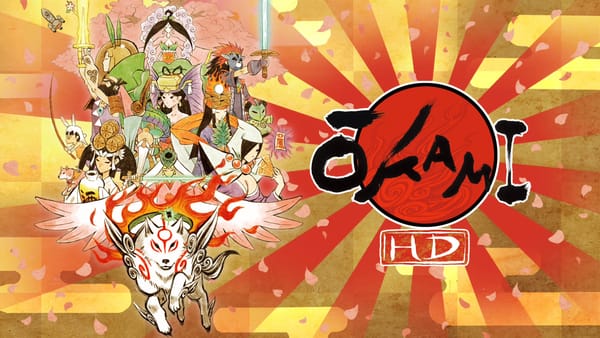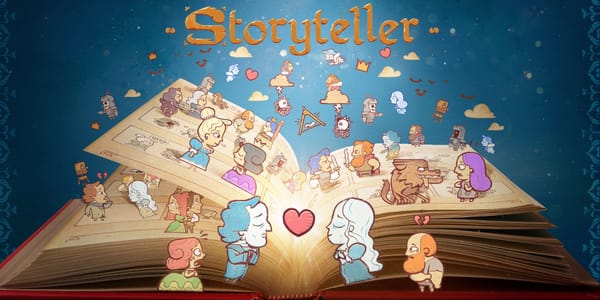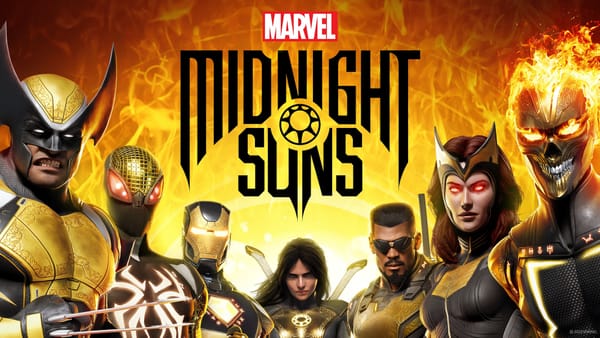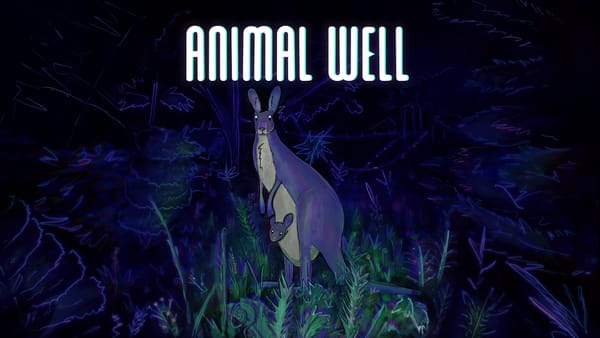Tactics Ogre: Reborn and portals to the past
Guest Backlog by Matthew Mastricova
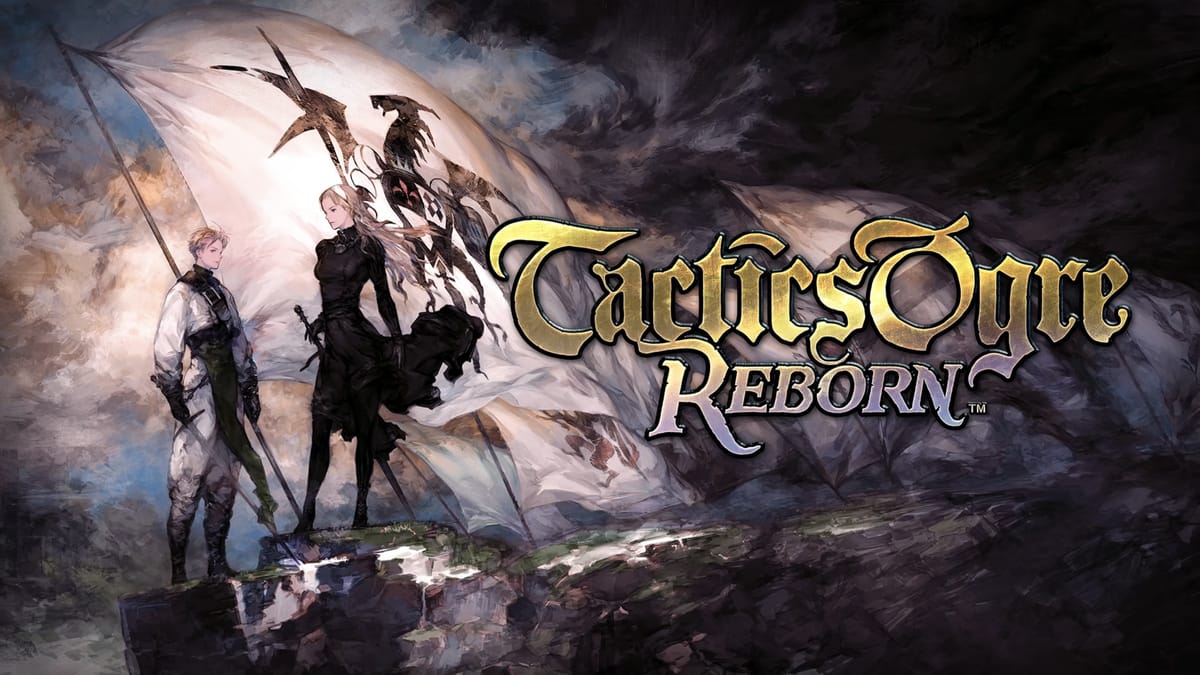
[Today’s Backlog comes from Matthew Mastricova. Matthew is a teacher in New York. Their work has appeared in Gulf Coast, Hex Literary, Passages North, the Threepenny Review, and elsewhere.]
I have sunk the past three years into portal fantasy. Books, anime, live-action drama, video games—if it had a portal, I jumped into it. I even tried to play Kingdom Hearts III, despite only having played half of the first game 15 years ago. (Did I understand anything of what I played? No. Did it lead to me watching hours upon hours of lore videos and making my eventual boyfriend explain the plot and sequence of the franchise, which led to an irrational interest in this hot mess of a crossover fan-fiction? You bet!)
There are the obvious reasons for this. Worldwide pandemic! Cabin fever! A personal life that had been sustained solely through routines and plans and people I no longer had access to, which without any of that scaffolding began gradually falling apart! But the larger, truer reason is that I have always loved portal fantasy. I live for the tension of two disparate worlds colliding, the excitement of the unknown and the safety of the mundane in a constant state of flux, the internal conflict between a character’s initial identity and their changed identity. It’s the idea that not only can you change your life, but you must. You must change, and you must confront the idea that when you return home, if you choose to return home, you may no longer belong in the way you once had.
Home for me, in terms of games, will always be Square Enix, embarrassed as I am to admit it. I complain about the Final Fantasy treatments, the proposed entry into NFTs, Balan Wonderworld, but I can’t erase the fact that their games have been formative for me. I have been hoping for the opportunity to fully, or, if I’m being honest, just to any extent, feel understood by a Square Enix release again. Then they announced that they were remastering Tactics Ogre, the one game in my favorite dead franchise that I haven’t played before, and the alienation I had felt for years seemed to instantly vanish. Yes, for once, Square Enix and I agreed on the kind of videogame that needs to exist in the world right now.
I’m not going to tell you whether Tactics Ogre: Reborn is good. You already know it’s good. It was good when the original was released in 1995, it was good when it was remade in 2010, and the 2022 remaster remains good.1
Playing Tactics Ogre: Reborn feels like moving within multiple modes simultaneously. Primarily, and most obviously, playing this game means immersing yourself within the world of the game. And the world of Tactics Ogre is stunning, especially on the narrative level. This is a game that catalogues the devastations of war in the imagined kingdom of Valeria, sent into upheaval after its king dies with no heir—cities are razed, people are murdered, moralities are built and strained and broken. This plot could easily collapse under its own ambition, but the characters are compelling and three-dimensional enough to sustain the level of intrigue and gravitas the game aims for. The plot’s progression also depends upon your own actions—the game provides choices at critical moments, and these choices ultimately decide how the story progresses.
Mechanically, it plays exactly as we’ve come to expect from the genre it helped define: a classic turn-based tactics game where you deploy a party of characters (all of whom can be outfitted in different equipment and given different roles and skills) to fight another party of characters on an isometric battlefield. Its pace is slower than later games built in its image. Smaller chunks of the game take more time to play than contemporary tastes might prefer, and I found myself playing in contained spurts instead of longer sessions.
More interesting to me, though, is how playing Tactics Ogre: Reborn led to its own type of portal fantasy. How each new mission brought with it echoes of the tactical RPGs released in the years since the original’s seminal debut. The specificity of Valeria’s history and the nuanced goals of the people fighting for control or order or justice only reignited my exasperation at the impressively bland character design and plot of last year’s The DioField Chronicle. It took so much effort at times to hold the political histories of Valeria in my head that I would sometimes yearn for the more direct politics of a Fire Emblem game, or the cozier, almost apolitical world of Final Fantasy Tactics Advance. Meanwhile, the at-this-point quaint gameplay and class system only made me more deeply appreciate the innovative gameplay and character mechanics of Triangle Strategy.2
The portal it creates takes me not only to those other games, but also to some of my most formative gaming memories. I’ve wanted to play Tactics Ogre for years, not just for its reputation but for its relations. Playing Ogre Battle 64: Person of Lordly Caliber for the first time—summer break before fifth grade, my best friend’s older brother staying in our basement for the week because he had to work through his family's vacation, a single game packed, one I had never heard of, asking if I’d like to play, guiding me through developing my character’s system of beliefs, talking to me like my thoughts mattered, like eight years between us did not mean I shouldn’t be taken seriously, showing me how to promote characters between classes, how to set up units’ positions, talking me through his strategies as he played through his own file—felt like a rite of passage. There was my understanding of what a game could be before Ogre Battle 64, and my understanding after it.
There is a particular joy in growing up alongside the games you love, being able to periodically check in with the newest release of a series. Are we still the same? How have we changed? Is it still possible to love you without the sheen of nostalgia? If no, if our relationship as game and player has ended, will you at least bring me back to my memories? Can I at least love you that way? But the Ogre Battle series has been creatively dead for over two decades. There’s no growing up alongside the world of these games, only a past to excavate. So I found a way to play every other Ogre Battle, mostly through paying more money than I feel comfortable thinking about for out-of-print copies for older game systems. Tactics Ogre was the last game left.
As I started up the game for the first time, I knew the basics of what to expect. I was in for a long game, for one thing. I knew I would spend so much time customizing my army, possibly more than in actual combat. I knew I was going to make “good” choices, because even in a videogame the idea of choosing to actively hurting people unsettles me. But I didn’t expect to cry at the title screen as “Ogre Battle Overture” pumped through my TV’s speakers for the first time in almost twenty years. Admittedly, I cry at most everything, but I can usually expect when the tears are about to fall. I didn’t expect that feeling 10 years old again would feel so visceral, that even just a song could anchor so firmly in time. I knew then that I would never know for sure if I loved Tactics Ogre: Reborn for what it is or if it would forever be overshadowed by its function as a portal, its ability to transport me to the period of my life when I first played Ogre Battle 64. The gratefulness I felt for its existence would never allow me to not sing its praises.
When a previously out-of-print game is reissued, we are not only told what game publishers believe will create profit, but what they believe is worth preserving (which is not the same as what is, in fact, worth preserving). And in that, we are invited to consider what that effort leaves in its absence, what is deemed unworthy (by profit-driven game publishers) of preservation, and how the production-side calculus has changed between a game’s initial release and the current day. There is a reason it’s Tactics Ogre, one of the progenitors of a genre that only becomes more popular and marketable every year, being remastered now, and not any of the other Ogre Battle games. As ambitious and idiosyncratic and genius as they were, they had less of an impact on the gaming world at large, left fewer people clamoring for more.
Remasters are vital to the videogame ecosystem—they are one of the few legal ways to prevent games from becoming lost media. When made with fidelity, a remaster can rejuvenate the life of a game that has otherwise fallen out of public consciousness (like, say, this one). By integrating quality-of-life, graphical, and audio updates, gamemakers can ensure classic games, especially out-of-production games, remain accessible to younger, more casual, and less affluent fans. Maybe, although this is certainly more of a wish than an expectation, it can even revive a series multiple decades dead.
But I also think it’s worth considering the role of the remaster in the broader gaming world, where so many publishers are focused increasingly less on backwards compatibility, where (legal) access to the “portal” of gaming is controlled overwhelmingly by corporations. We can see their dedication to access when Nintendo aggressively litigates against ROM sites but then shuts down the 3DS eShop, leaving much of that system’s software impossible to access legally while pushing remaster after remaster after remaster. Game publishers are such ineffective preservationists that only 13% of games released before 2010 are commercially or readily available. In this context, I think it’s worth asking: When is remastering, or reissuing, or rereleasing a game no longer a service, but instead another path for simply monetizing nostalgia? When does a portal no longer fully transport us to a new world, or an old world, or a forgotten world, but instead traps us within a slipshod recursion, eternally promising a destination we will never reach while its stewards feed off our time, our attention, our perpetually-thinning wallets, and then expect us just to be grateful for their service?
Before playing Tactics Ogre: Reborn, I knew I would feel thankful for its existence. And I do. But having played it, having traveled through the portal and returned, I can’t think about how this game has been remastered without also thinking about the conditions that lead to remasters existing in the first place. So I once again return to desire—I wanted Square Enix to signal home for me in the same way it did in my childhood, and playing this game has revealed to me that it never will. Even if those earlier games are worlds I am joyful to return to, I have been changed by them already. There are still unexplored stories to experience, other ways of living in the world, and I want to know them. When we step into other worlds, we must understand the responsibility that comes along with it. We cannot expect to return unchanged.
If you want to see some people talk about its ins and outs, though, I really enjoyed these reviews in particular. ↩
While also remembering how that game’s over-exposition and distrust of its players hamstrung its attempts at political intrigue and emotional resonance. ↩


